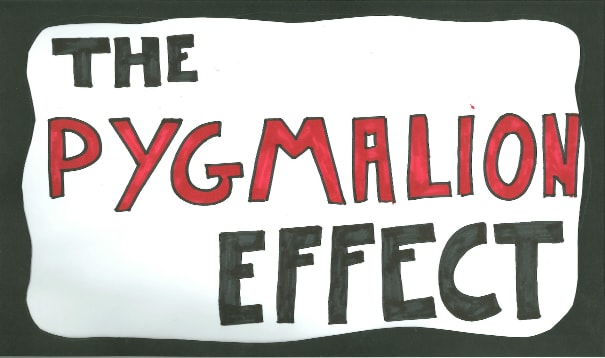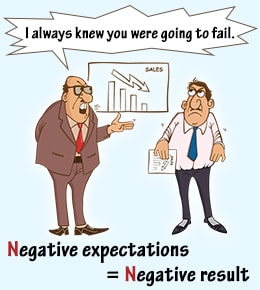In ancient Greek times, there was a famous sculptor, whose name was Pygmalion after whom the Pygmalion Effect is named. According to history, Pygmalion had sculpted an ivory statue. A statue so beautiful, that it was said to take the breath away of all those who so much as glanced at it. The statue was a masterpiece, a marvellous work of art that can only be described as the work of a God. It was said that the statue was so mesmerizing, that Pygmalion himself fell in love it. Infatuated, the sculptor begged the gods to give a wife who looked similar to the statue he made. The gods granted his request and the statue came to life.

This story acts a base upon which I’ll discuss my topic.
So what is this Pygmalion Effect?
According to Wikipedia’s definition, The Pygmalion effect, or Rosenthal effect, is the phenomenon whereby higher expectations lead to an increase in performance. A pretty simple definition for a not so simple phenomenon.

Due to the nature of the effect, proper studies couldn’t be conducted on the topic. It was Robert Rosenthal and Lenore Jacobson, who were the first to conduct conclusive studies on the topic and produce promising results. Other scientists had conducted various experiments to validate the theory, but none proved to be as helpful as the discovery of Rosenthal and Jacobson. They conducted experiments on the school level. They showed by examples that, should teachers expect enhanced pursuance from children, then the children’s performance was greatly alleviated. This discovery supported the observer-expectancy effect, which claimed that reality can be positively or negatively influenced by the expectation of those around you.

This shows that the practical applications of the Pygmalion effect are nearly limitless. It can be applied to each and every aspect of our lives. What our parents expect from us will shape how our life turns out in the foreseeable future. What expectation our teachers have set for us, will act as a base from which we will mould our character. The expectation that our boss has from us will be a crucial factor. These are few of the applications that I mentioned of the top of my head.
As there is a yin for a yang, there is another side to the Pygmalion Effect. Sort of an evil twin. It’s known as the Golem Effect. The Golem effect clearly states that lower expectations lead to poorer performance. Basically just the opposite of whatever I’ve mentioned above. Simple as that.

I’ve often heard the saying, expect less and live happily (or something of that sorts). But how do you expect to live when you’ve got nothing to look forward to. How long do you intend to keep your expectation to a bare minimum? There’s eventually gonna be a limit. On the contrary, why not live your life to the fullest? As I’ve mentioned, greater expectations from your comrades will lead to greater efficiency. But it needs to be from both sides. Motivate your friends and family. Make them believe that they can do greater things and that you expect great things from them. Do this and they’ll surely return the favor.



